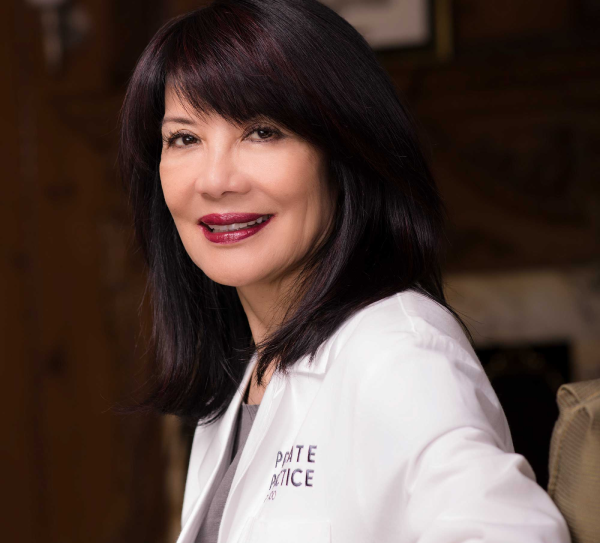Retinol is the #1 skin-transforming ingredient for aging skin, which is why retinol creams are one of the most in-demand skincare products. But what is a retinol cream and what are the pros and cons of using one? Dr. Koo tells you everything you need to know so you can make an informed choice before buying one.
WHAT IS A RETINOL CREAM
Retinol, a derivative of vitamin A, is the foremost skincare ingredient to address signs of aging, like fine lines, wrinkles, enlarged pores, uneven tone and lack of radiance. It’s the most widely studied and clinically proven ingredient to help boost collagen and increase cell turnover. While retinol is the super star of a retinol cream, other active ingredients are necessary to help deliver the retinol deep into the skin matrix for visible skin rejuvenation.
THE PROS OF A RETINOL CREAM
Supports Collagen and Elastin
Collagen and elastin are the building blocks of your skin, which directly affect its firmness and texture. Both collagen and elastin breakdown with age, which leads to the development of fine lines, wrinkles and lack of firmness. Retinol creams stimulate the production of your skin’s natural collagen and elastin. Overtime, with consistent use of a retinol cream, skin appears more firm and plump, and texture appears more smooth.
Increases Cell Turnover
Like collagen and elastin, cell turnover keeps skin looking vibrant and youthful. Cell turnover is the process in which your skin naturally and continuously sheds dull, dead, dry cells to reveal fresh, healthy cells underneath. Of course, this process slows as you age, which causes your skin to lose its vitality. Applying a retinol cream daily speeds up cell turnover by providing a surface level exfoliation. As dead skin cells are removed, skin becomes visibly more vibrant and radiant.
Minimizes the Look of Pores
A benefit of a retinol cream speeding up cell turnover and boosting collagen production is pore size. Your pore size naturally increases with age due to lack of skin firmness and the accumulation of dead skin cells. Retinol creams help reduce pore size because they firm your skin and clear pore-clogging dirt, oil and dead skin cells through topical exfoliation.
Brightens Tone
The increase in cell turnover directly affects the vibrancy of your skin. As dry, dead skin cells clog your pores and collect on your skin’s surface, they dull its youthful glow. Retinol creams revive radiance though, as previously mentioned, topical exfoliation. Nightly application of a retinol cream works magic on your skin’s natural luminosity.
THE CONS OF A RETINOL CREAM
Skin Sensitivity
Retinol creams are notorious for causing skin sensitivity. Burning, itching and flaking occur when your retinol cream sits on the surface of the skin and is not fully absorbed. Some people have been programmed to believe you must experience skin sensitivity to know your retinol cream is working. Nothing can be further from the truth. Irritation from retinol is extremely damaging to your skin’s protective barrier—the layer responsible for keeping moisture in and pollutants out. Retinol creams that are pH optimized for better absorption will not cause sensitivity. They are specifically formulated to penetrate the skin at a deeper level. In other words, the retinol skins right in.
Concentration of Retinol Cream
Retinol is not a one-size-fits-all ingredient. A 30-year-old and a 65-year-old should not be using the same concentration of retinol. The concentration of retinol in your retinol cream should be based on your current skin state. Deeper lines and wrinkles need a higher concentration of retinol, while those looking to maintain collagen and elastin to prevent aging need a lesser amount. Most retinol creams offer one concentration, which will not deliver your desired results. At Private Practice, we offer 4 concentration levels for this exact reason.
Quality of Ingredients
Retinol creams are made up of more than just retinol. For the retinol to penetrate, absorb and work effectively, it needs additional active ingredients to support it. The quality of these ingredients is as critical as the retinol. Look for retinol creams where the retinol is encapsulated with medical grade vitamins and fatty acids, which help make the retinol creams more effective and deliver superior results—smooth, firm, radiant skin.




